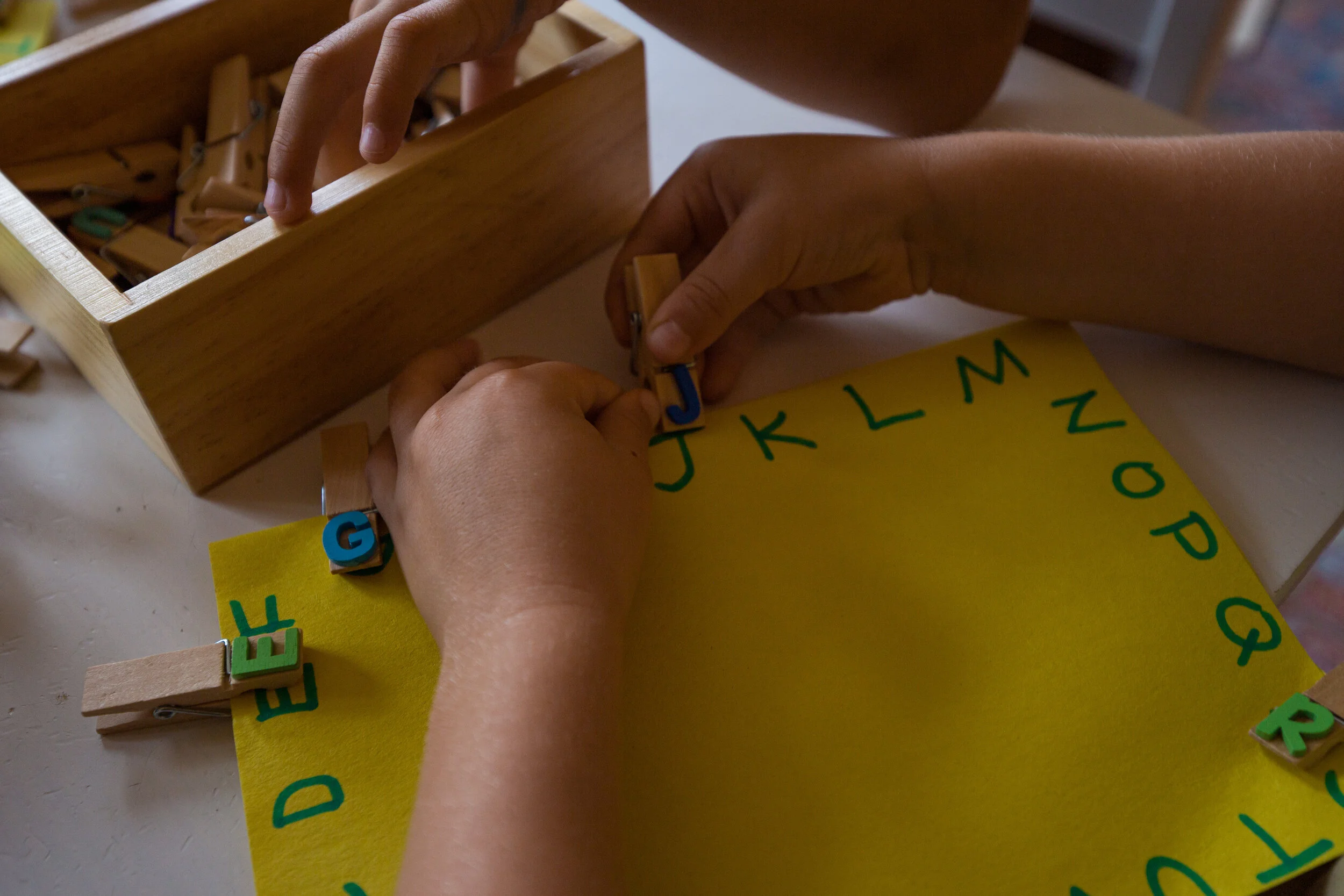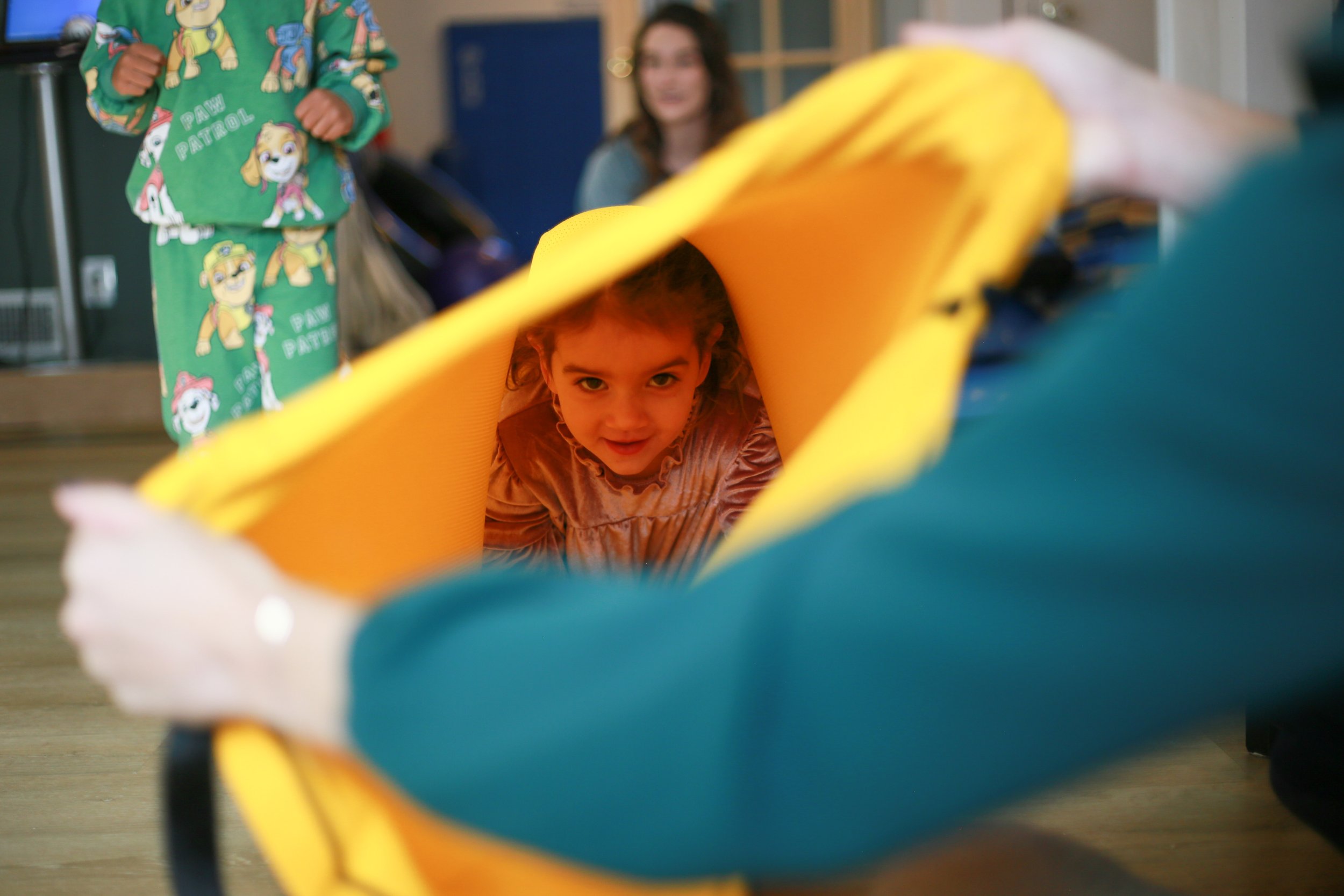Occupational therapy helps children and their families develop the skills needed to participate successfully in meaningful and developmentally appropriate activities. At The Point OT, we take a child-led, family-centered approach that promotes intrinsic motivation, confidence, and independence. Our services support a wide range of occupational areas, including:
Self-care and daily living skills: dressing, feeding, grooming, hygiene, and routines that build independence.
Play and leisure: encouraging exploration, creativity, imagination, and social participation through meaningful play.
Fine motor skills: handwriting, cutting, drawing, manipulation of small objects, and motor planning.
Gross motor skills and coordination: balance, strength, posture, and functional movement for safe and coordinated participation in physical activities.
Sensory processing and regulation: helping children respond and adapt to sensory input in ways that support attention, self-control, and emotional regulation.
Social participation: supporting connection and interaction with peers, adults, and in classroom/home settings to promote successful collaboration and problem-solving.
Cognitive skills and executive function: planning, sequencing, organization, attention, and problem-solving to support learning and daily functioning.
Visual Perceptual Motor and Ocular-motor skills: tracking, scanning, eye-hand coordination, visual memory, visual discrimination, and spatial awareness that support reading, writing, copying from the board, navigating environments, ball skills, and other areas of life.
Feeding therapy: supporting safe eating and drinking skills, oral-motor development, expanding food variety, and reducing stress at mealtimes for both the child and family.
Reflex integration: identifying and addressing retained primitive reflexes that may impact coordination, posture, attention, emotional regulation, and academic skills.
By addressing these areas in the child’s natural environments: home, school, daycare, and community settings, we help ensure skills carry over into everyday life. Our goal is to empower children to engage confidently and independently in all aspects of their daily routines, fostering growth, resilience, and a lifelong love of learning.
Fine Motor Skills
the small muscle movements in our hands and wrists required to carry out daily activities functionally.
Visual Perceptual Motor Skills
the coordination of visual information that is organized and perceived while being processed with motor skills.
Core Strength and Stability
the development of the torso muscles that stabilize, align, and move the trunk of the body. Poor core strength can cause poor posture which can also affect gross motor and fine motor skills as well as attention.
Feeding Therapy
Our occupational therapists take a comprehensive approach targeting motor coordination, sensory processing, independent feeding skills, and social experiences associated with eating.
Motor Planning and Praxis
motor planning requires a child to conceive or imagine a task, plan the steps required to complete a task, execute or carry the task out, and then rely on self-feedback for fluid and automatic movements. Motor planning relies on a child having an organized sensory system, as well as adequate body awareness. Therefore, if a child has difficulty with one or more of the senses this can lead to poor body awareness and motor planning difficulties.
Reflex Integration
When primitive reflexes are not fully integrated, children may show specific movement or behavioral patterns linked to those reflexes. These retained reflexes can interfere with motor coordination, attention, emotional regulation, and even academic learning.
Sensory Processing and Self-Regulation
the interpretation of information sent to our brains via our senses and movement. Children rely on processing sensory input adequately in order to maintain focus and regulation as well as to engage in their everyday environments.
Executive functioning
Attention, problem solving, flexible thinking, working memory, self-control, planning, prioritization, ideation, organization, behavioral inhibition, self-monitoring, and self-awareness.








